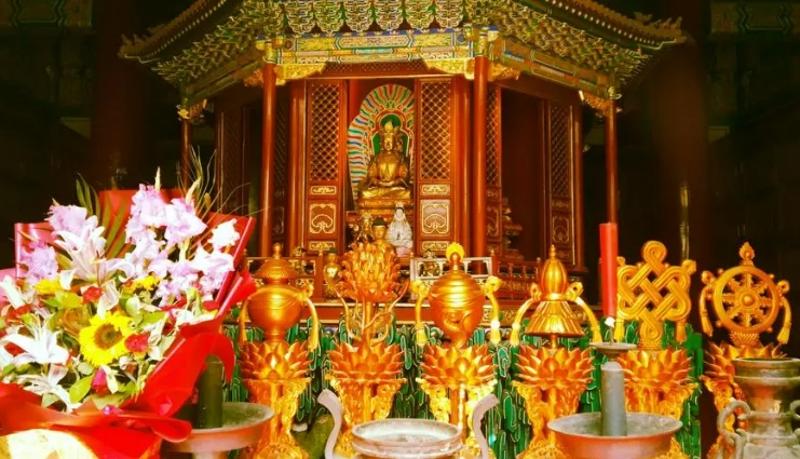Yonghe Temple: A Sanctuary of Tibetan Buddhism
Yonghe Temple, also known as the Yonghe Lamasery or simply Yonghe Palace, is a temple and monastery of the Gelug school of Tibetan Buddhism located at 12 Yonghegong Street, Dongcheng District, Beijing, China. The architecture and artworks of the temple blend Han and Tibetan styles, making it one of the largest Tibetan Buddhist monasteries in China. The current abbot is Lama Huxuefeng.

Reference: Yonghe Temple: A Cultural Gem of Buddhism in Beijing
The Gelug School of Tibetan Buddhism
Yonghe Temple belongs to the Gelug school of Tibetan Buddhism, also known as the Yellow Hat sect due to its monks wearing yellow hats. The founder of the Gelug school is Tsongkhapa. Within Yonghe Temple, numerous statues of Tsongkhapa are enshrined, highlighting his significant role in Tibetan Buddhism.
Differences between Tibetan and Han Buddhism
Tibetan Buddhist temples differ from Han Buddhist temples in various aspects, including the deities worshipped and the styles of Buddha statues. Within Yonghe Temple, the halls are adorned with Tibetan-style thangkas and enshrine local Tibetan deities, showcasing a distinct religious atmosphere from Han Buddhist temples.
Historical Evolution of Yonghe Temple
Originally, Yonghe Temple served as the residence of Emperor Yongzheng of the Qing Dynasty and was later converted into a royal palace and then a lamasery by Emperor Qianlong, who regarded it as "the great temple of my family." The exclusive veneration of the Gelug school at Yonghe Temple was due to its predominant influence during the Qing Dynasty, not only in Tibet but also in Qing territories like Mongolia.
Modern Significance of Yonghe Temple
Today, Yonghe Temple continues to thrive as a place of pilgrimage and a popular spot for young people to visit and take photos, believed to be spiritually potent. Its rich history and cultural heritage attract tourists and devotees from around the world, contributing to the enduring legacy of China's religious traditions.
QA:
Question: What sect of Tibetan Buddhism does Yonghe Temple belong to?
Answer: Yonghe Temple belongs to the Gelug sect of Tibetan Buddhism, also known as the Yellow Hat sect.
Question: What was the original purpose of Yonghe Temple?
Answer: Originally, Yonghe Temple served as the residence of Emperor Yongzheng of the Qing Dynasty, later converted into a royal palace, and then a lamasery by Emperor Qianlong.
note: This return of all, without the author's permission, may not be reproduced